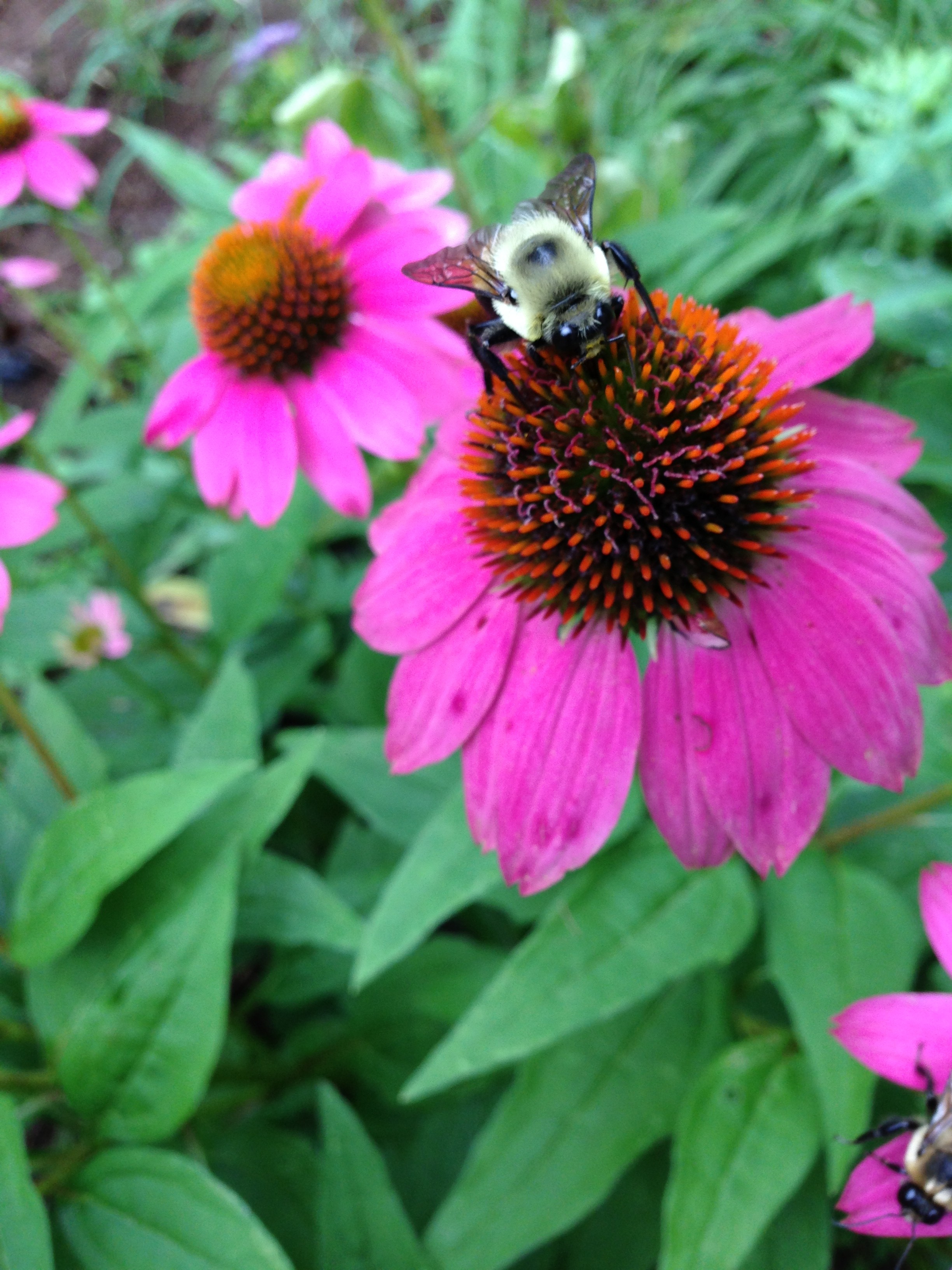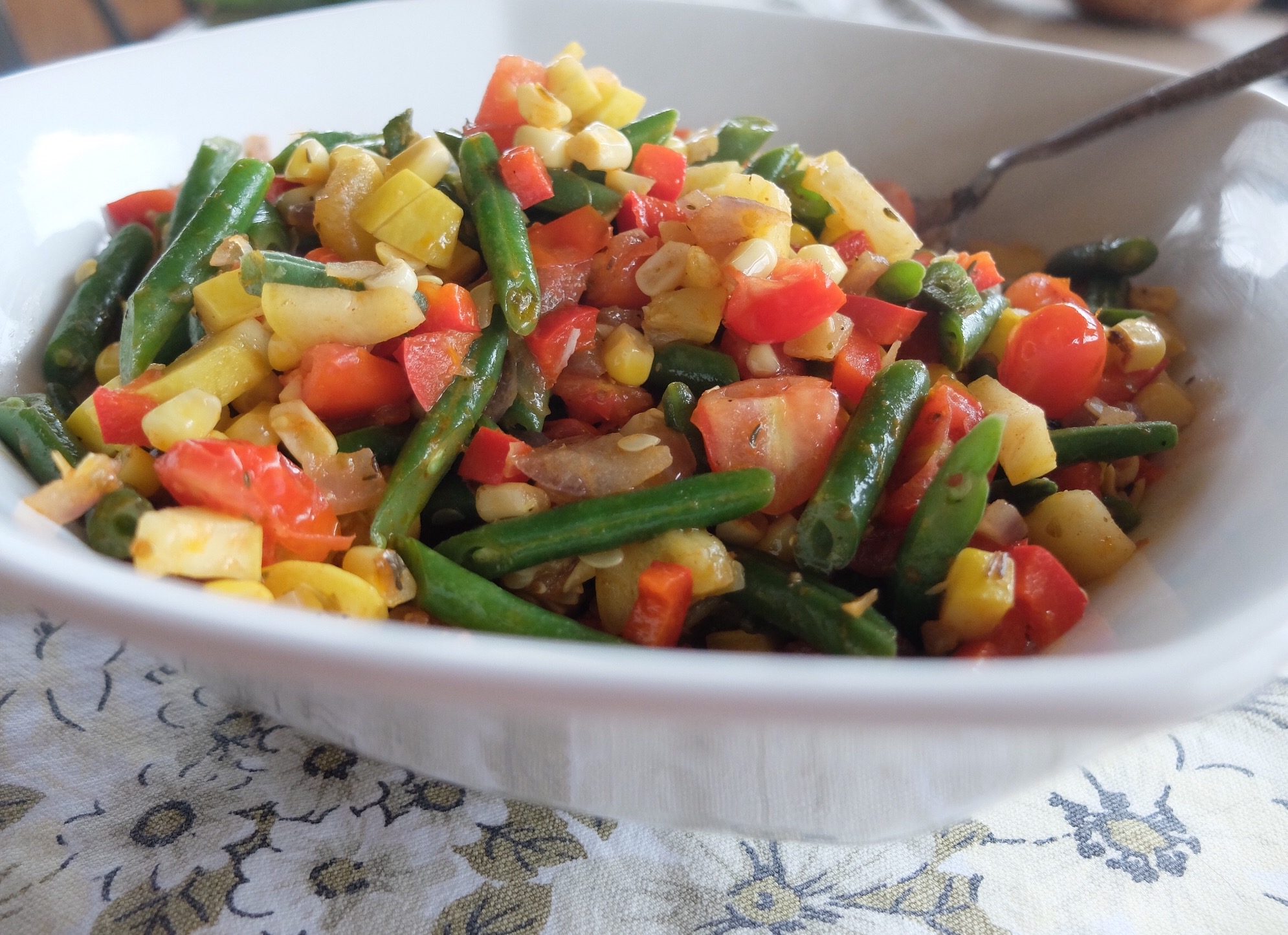The sun was sitting fairly low in the sky, as fireflies took to the air for their inaugural flight. The putt-putt of Daddy’s John Deere 10-10 sounded the beginnings of our summer garden. It was the click-clack of the setter’s forks that often scared the bejeezus out of me as a child. Clutching the tomato slip tightly in my grubby hand, I imagined it pulling me in and planting me right along with the Better Boys. Riding backward on that setter, my sister and I would take turns accompanying Mamma to plant what sustained our family throughout the year. All the while, Daddy and his John Deere led the way.
Sets, starts, seedlings, slips…
all names for young seedlings growing in those crinkly, plastic containers found in garden centers across Middle Tennessee. And if you didn’t start tomatoes by seed last month, these are your best bet for a bountiful July/August harvest. The same goes for peppers, eggplants and other nightshade annuals. A few fruit and vegetable seeds that can still be sown directly into the soil during warm months are squash, corn, cucumbers, melons, gourds, peas and beans.
Whether you plant a patio garden, are practicing the square-foot method or have tilled up your entire backyard, make a plan and stick to it. Most plant and seed packets offer basic planting instructions. Essentially a garden needs plenty of light, food, irrigation/drainage and protection.
Starting with fertile soil is key. The UT Extension Office offers soil testing for $7 which will help determine necessary amendments. This isn’t a set-it-and-forget-it scenario. Once planted in a sunny location, your garden will need regular feeding. Turning composted manure and plant matter into the soil is a fantastic way to introduce natural fertilizers while loosened and aerating the soil. Still, a top layer of mulch will help keep moisture in and weeds out. Interval feedings of water soluble matter such as worm castings, chicken manure and/or bat guano are vital additions to early morning watering, thus allowing the foliage to absorb nutrients before the heat of the day. Pay close attention to the liquid-solid ratio. Using too much manure will burn plants. On the topic of water, incorporate rain barrels and soaker lines with sustainable gardening practices.
Companion planting is another important tenant of natural gardening. The Native American “Three Sisters” exemplifies such planting. As Alice Formiga explains to Renee’s Garden, corn provides a natural trellis for beans. Beans offer support to corn when the wind blows and is a renewable nitrogen resource. Squash provides shade eliminating the need for mulch while its spiny, exterior discourages various pests. Best of all, the three sisters make a tasty succotash.
Dismissing beneficial flowers and herbs will result in a garden lacking balance. Marigolds, lavender, basil and nasturtiums are excellent at repelling harmful pests. All the while cosmos, coneflower, borage, sunflowers and buckwheat attract pollinators.
Scarecrows, cd chimes, plastic owls and even blinking Christmas lights are ways folks try to scare the larger critters away. Barring a 10-foot tall fence around the garden’s perimeter, Bambi and Thumper are going to eat a portion of the garden. Plant extra!
Last year, the birds enjoyed a buffet of watermelon and cantaloupe until we put one of those plastic owls out on a pole. The owl has to be moved around to be most effective and the neighbors may think you’re crazy. Hey, whatever works.
Don’t be afraid to experiment. Take notes and look back on them for future plantings. What worked last season, may not this one. Successive and rotational planting will provide higher yields. But if you have pickled all the cucumbers you can stand, join a local crop swap. And for goodness sake, save those seeds.
Daddy has changed the oil in that old 10-10 and has begun planting his summer garden. He and I will compare planting techniques. After a few rounds about preferable feeding and pest control methods, we will share a plate of fresh garden vegetables. We will cherish memories of the garden, old and new.Truly, it is in the garden where nourishment is found.
Garden Succotash
1/2 red onion chopped
1/2 red bell pepper chopped
1 clove garlic minced
1 1/2 cup green beans blanched and cut on the bias into 2-inch pieces
1 1/2 cup yellow squash cut into 1-inch cubes
1 1/ 2 cup corn cut from the cob
1 cup cherry tomatoes cut into quarters
1/2 tsp dried thyme
1/2 tsp dried oregano
1/8 tsp red pepper flake
1/8 tsp black pepper
1/8 tsp salt
1/2 tsp smoked paprika
2-3 tsp olive oil
In a large cast iron skillet heat olive oil, thyme, black pepper and red pepper flake on medium high heat.
Stir in onion and bell pepper. Cook until onions turn translucent before adding salt.
Incorporate tomatoes, oregano and smoked paprika. Cover and simmer for no more than 5 minutes.
Serve al dente vegetables as a hot side. Add a whole grain for a one dish meal. Refrigerated, this succotash makes a great summer salad.



